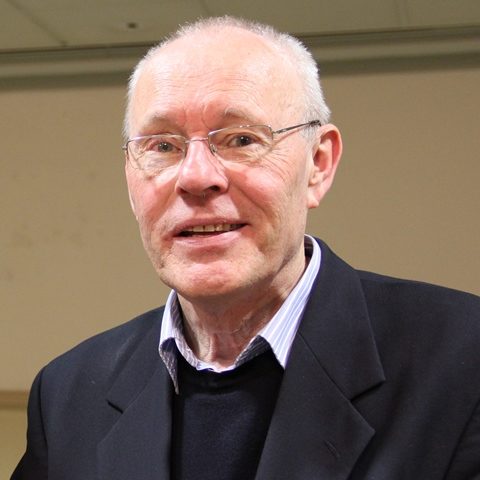Our life in Christ – that is, our Christian life – is first and last a gift. The two most obvious signs that this is in fact true in my life are grace and freedom. There is a graciousness about people alive with Christ. Such people have a freedom in themselves and they help to set others free. Beware of rigidity and dogmatism – these do not radiate Christ.
The Dominican priest, Meister Eckhart (1260-1327) writes: “This above all else is needful: you must lay claim to nothing! Let go of yourself and let God act with you and in you as He will. This work is His, this Word is his, this birth is His, in fact every single thing that you are.” (“Sermon One” in Meister Eckhart: Sermons and Treatises, Volume I, translated and edited by M. O’C. Walshe, Element Books, 1989, 33.) In another sermon, Eckhart’s gentle words – with just a touch of irony – are full of promise. They remind us that the pursuit of the moral life is in fact the opening of ourselves to the greatest possibilities that can be ours as human beings: “My dear friend, what harm can it do you to do God the favour of letting Him be God in you?” (“Sermon Thirteen (b)” in Meister Eckhart: Sermons and Treatises, Volume I, op cit, 118.)
Our response is one of facilitation rather than mastery. Growth in Christ comes as gift not conquest. It is, however a task and we must work hard to facilitate the blossoming of the gift.
We need to feed our minds and imaginations with good, substantial ideas and images that open us and draw us to the Presence of God. First and foremost we must do everything we can to become aware that we are loved infinitely by God. We must taste God’s presence in our very beings.
In the monastic tradition there are four different but interlocking practices that can assist this intention. They are known by their Latin names because those Latin names cannot be satisfactorily translated.
The first practice is slowed down reading. This is a reflective, ruminating kind of reading called lectio divina (“spiritual reading”). The primary text for lectio is the Bible and the primary context is the community. However, other texts and other contexts are not to be excluded. The important thing is the way you read. Rainer Maria Rilke sums that up nicely when he writes: “He does not always remain bent over his pages; he often leans back and closes his eyes over a line he has been reading again, and its meaning spreads through his blood.” (Cited in Charles Cummings, Monastic Practices, Cistercian Publications, 1986, 9. (See Rainer Maria Rilke, The Notebooks of Malte Laurids Brigge, trans M D Herter Norton, W W Norton, 1949, 201.))
The second practice is study and research called meditatio (“meditation”). This should not be confused with what is commonly called “meditation” today – a practice that generally moves right away from thinking as such. The thoughtfulness of lectio will often give rise to questions that need attention. This takes us to books or knowledgeable people. Lectio might also awaken in us personal issues that need to be addressed. We could include the addressing of those personal issues under this heading too.
The third practice is simply talking to God, sometimes referred to as oratio (“prayer”). The lectio and meditatio will often fire the mind and heart, giving rise to informal and spontaneous conversation with God.
The fourth practice is being still and silent in the Presence, sometimes referred to as contemplation . The lectio, meditatio and oratio bring us quite naturally to a moment in which the Psalmist’s words become very real: “Be still and know that I am God” (Psalm 46:10).
The more we do this, the more we are drawn into the life of God now.
